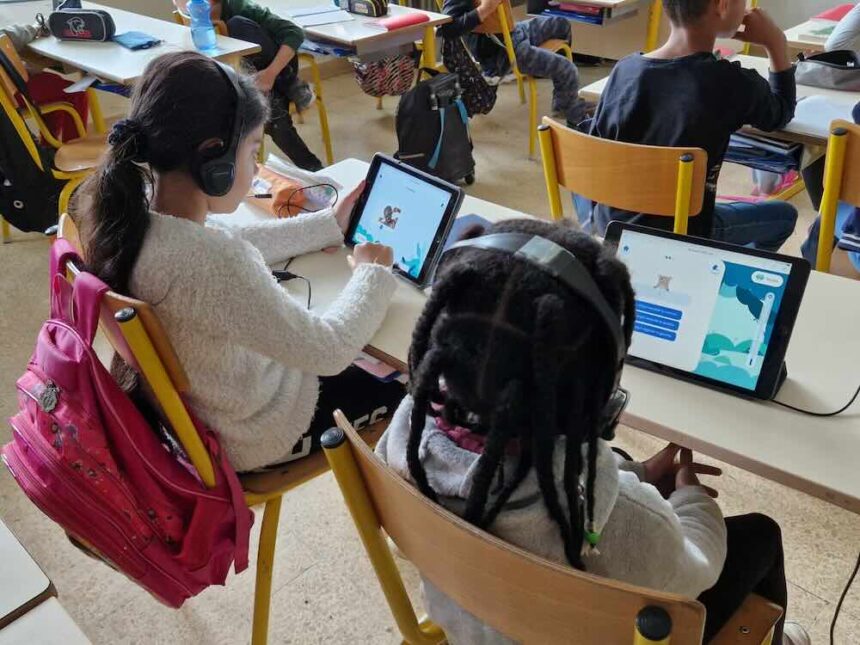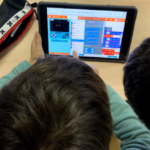Mostafa Fourar, Rector of the Toulouse Academy, attended a session in a second-grade classroom at Soupetard Elementary School on May 7th. The session featured the educational solution « Lalilo, » which uses artificial intelligence to enhance reading and language learning.
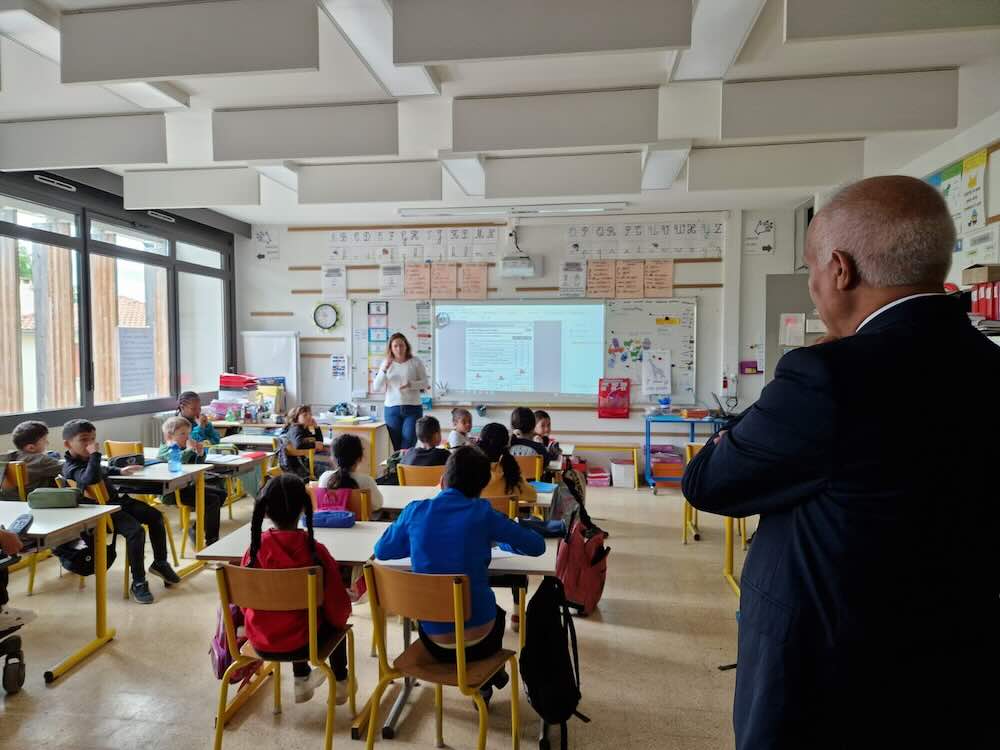
At a time when screen time is a hot topic, the Rector of the Toulouse Academy took this visit as an opportunity to highlight the work of certain teachers who are integrating new forms of pedagogy by using digital tools in their classrooms.
This event showcased the educational solution Lalilo, which is part of the plan deployed by the Ministry of Education under the P2IA (Partnership for Innovation in Artificial Intelligence). This innovative public procurement initiative aims to develop AI-based solutions in collaboration with companies in the educational technology sector (EdTech) and research laboratories (Ed-Lab). Recently, in Ludomag, Axel Jean, Head of the Office for Support for Digital Innovation and Applied Research at the Digital Education Directorate, discussed the P2IA.
For Delphine Heslot, an elementary school teacher, the use of Lalilo in her class is a no-brainer as it brings real added value to her students.
It is a fun tool, easy to use at home or in class, that adapts to the student’s level and evolves at their own pace (AI), and finally, it rewards student progress (badges, diplomas, rewards).
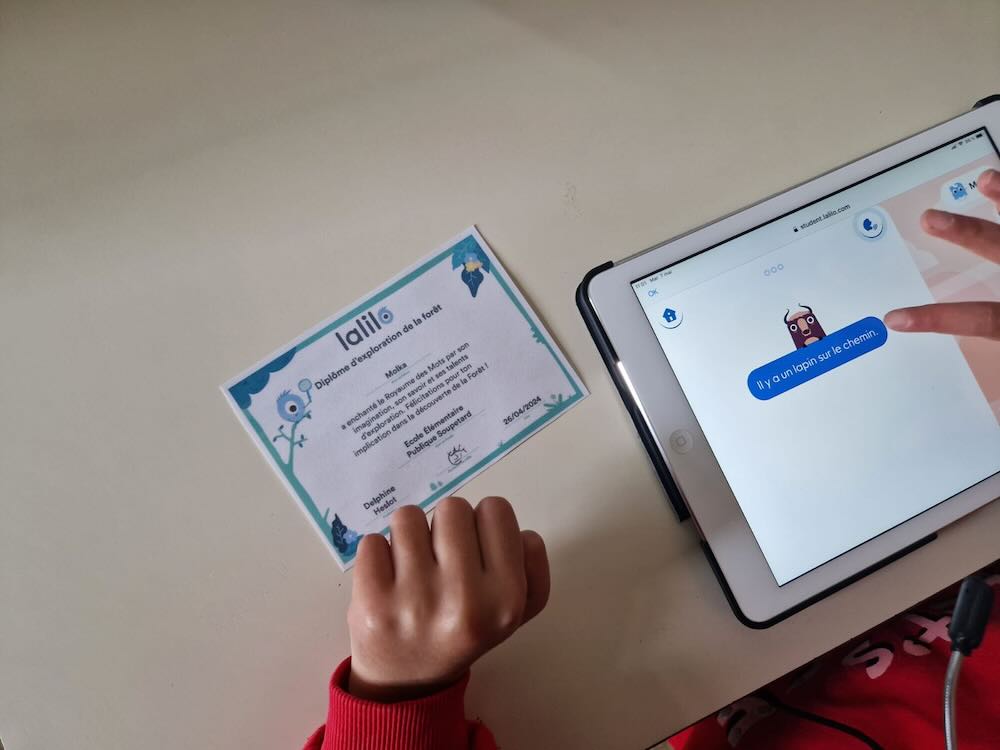
Of course, this teacher does not use tablets and Lalilo all day long; the tool complements other more « traditional » teaching approaches she practices. In fact, she limits the use of the solution and screens to a maximum of 2 hours per week.
Nevertheless, digital technology is a real asset for implementing differentiated instruction.
« Struggling students revisit unacquired concepts, while advanced students move beyond what they have already mastered. »
She notes that her students are making progress in reading, comprehension, and learning new vocabulary (lexicon).
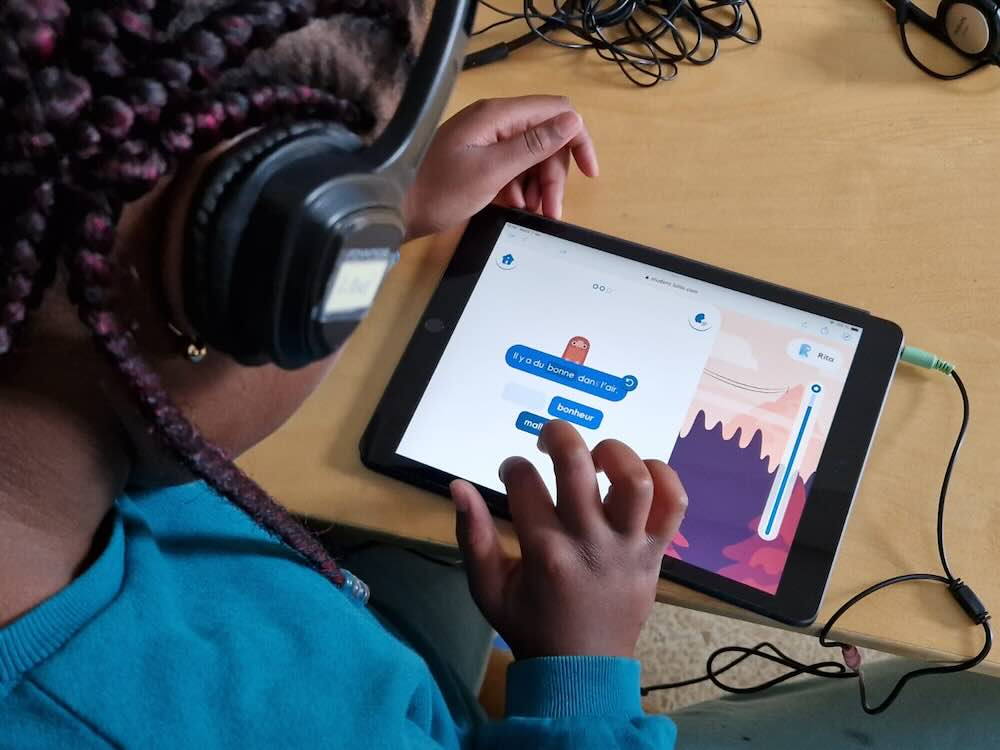
From a research perspective, the solution has also proven its worth. The Digital Education Directorate reports a recent study conducted in the United States with a panel of 15,000 students, where the use of Lalilo reportedly provided an additional six weeks of learning for struggling students.
Lastly, an efficiency study conducted in France during the 2020 lockdown stated: « Encouraging results suggest that usage within the framework of continuous education has a positive impact on reading learning. »
Source of images: Toulouse Academy Communication Service



